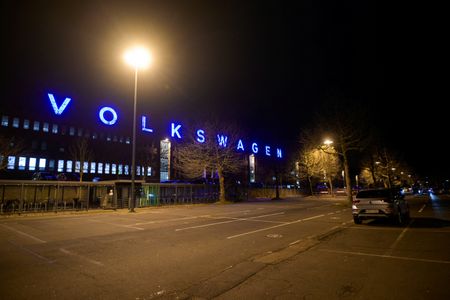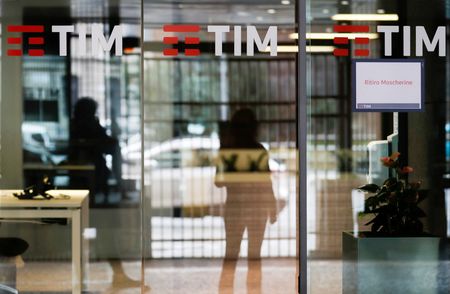By Christoph Steitz, Tom Käckenhoff and Vera Eckert
FRANKFURT/DUESSELDORF (Reuters) – RWE, Germany’s largest power producer, has the funds needed to tackle an unprecedented rise in energy prices, Chief Executive Markus Krebber said, adding the company’s liquidity managers had prepared for even the most “extreme scenarios”.
Less than two weeks ago, RWE’s smaller rival Uniper said it needed an extra 10 billion euros ($11 billion) in credit lines.
German regional utility STEAG also said record energy prices had caused it to secure extra funding to cover payments tied to hedges that are lower than the current spot price.
“In our extreme scenarios, all possible cases were covered. Liquidity management was prepared for this. It’s part of the business,” Krebber, who took over as RWE’s CEO last year, told Reuters in an interview during the Handelsblatt Energy Summit.
“Although it has to be said that the situation was exceptional.”
Since late December, wholesale prices have eased, but the industry expects a prolonged period of higher volatility when retail customers across Europe already face higher bills. [EL/DE]
Krebber said he expected prices to normalise to a level above the historic average, adding this would be the case for as long as Germany remains dependent on fossil fuels, including coal-fired power plants.
RWE has faced pressure from some investors, most notably energy activist investor ENKRAFT, to divest its lignite activities that it says have devalued the company relative to pure play renewable energy groups.
Krebber said that an early lignite exit required a massive expansion of renewables as well as solutions to ensure security of supply and to help affected employees.
“That is our path. And that’s also how the valuation uplift will come about, just perhaps a little later,” he said.
Shares in RWE, also one of Europe’s largest developers of renewable energy projects, have gained about 9% since ENKRAFT first called for a lignite spin-off in September last year.
Germany’s new government, in its coalition agreement published in November, said it would assess the establishment of a foundation to oversee the decommissioning of coal-fired power generation and the return of sites to their natural state.
“It’s a political decision whether there’ll be a foundation and if there is, we will hold talks. If not, we won’t,” Krebber said, adding any restructuring of its lignite plants could only be done in agreement with the government under an existing exit deal.
($1 = 0.8800 euros)
(Reporting by Christoph Steitz, Tom Kaeckenhoff and Vera Eckert; editing by Barbara Lewis)










